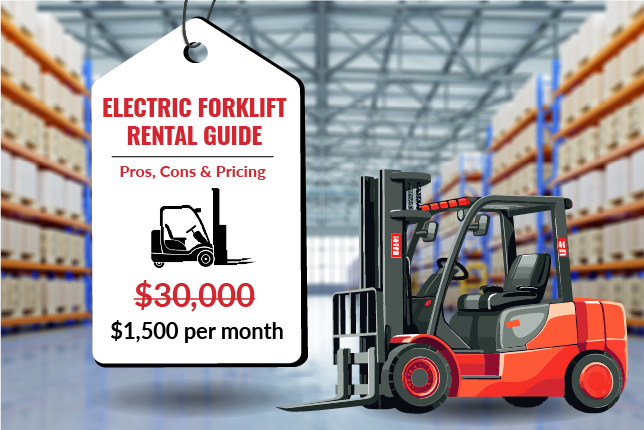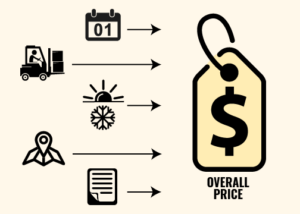Electric forklift rentals provide a practical and cost-effective solution for businesses seeking flexible equipment solutions without the substantial investment of ownership. Whether navigating short-term demands, seasonal spikes, or specialized indoor operations, electric forklift rentals offer companies the versatility and agility needed to efficiently manage varying workloads.
In this article you will understand the nuances of electric forklift rentals and become familiar with typical use cases and pricing structures to make informed decisions about electric forklift rentals for your business.
Let’s dive in!
In case you are just here for the pricing?
Understanding Electric Forklift Rentals
Renting an electric forklift gives businesses access to the equipment they need without the upfront cost or long-term commitment of buying. Rentals typically include the forklift, battery, and charger, with maintenance and support provided by the rental company. It’s a flexible solution that works across a range of environments, helping companies stay focused on operations without the burden of ownership.
Electric Forklift Rental vs. Purchase
When you rent an electric forklift, you pay as you go, avoiding the upfront cost of buying one, which usually costs around $30,000. However, renting can become more expensive over time.
If you need a forklift for daily, long-term use, buying is often more cost-effective over time. Ownership gives you full control, including the ability to customize with special attachments—however it also means you’re responsible for maintenance and repairs.
On the other hand, renting offers flexibility and convenience, with maintenance typically included, saving you time and unexpected expenses. While rentals usually can’t be customized, they come with predictable short-term costs, making them ideal for occasional use or short-term projects.
To help you evaluate which option is best, here’s a quick overview of key expenses to consider:
Buying vs. Renting an Electric Forklift Comparison
| Expense Category | Buying | Renting |
|---|---|---|
| Initial Purchase Cost | ✔️ | ❌ |
| Depreciation | ✔️ | ❌ |
| Maintenance/Repairs | ✔️ | Usually Included |
| Battery Charging | ✔️ | ✔️ |
| Insurance | ✔️ | ✔️ (often lower) |
| Financing Interest | ✔️ | ❌ |
| Storage | ✔️ | Usually ❌ |
| Transportation Fees | Usually ❌ | ✔️ |
| Training | ✔️ | ✔️ |
| Disposal | ✔️ | ❌ |
| Excess Usage Fees | ❌ | ✔️ |
| Damage Fees | ❌ | ✔️ |
Pros of Renting an Electric Forklift Rental
Electric forklift rentals offer practical advantages for businesses needing temporary or flexible solutions. Here are the main benefits:

Cost Efficiency
- Reduced Upfront Costs: Pay only for the rental periods you need, freeing up capital for other investments.
- Included Maintenance: Maintenance and support typically come with rentals, preventing unexpected repair costs.
- Tax Advantages: Rental fees are often fully deductible as operating expenses, offering immediate financial benefits compared to asset depreciation (consult your accountant for specifics).
Flexibility and Scalability
- Adjustable Fleet Size: Quickly scale your forklift fleet up or down according to your business demands, preventing shortages or excess idle equipment.
- Operational Agility: Easily add or remove forklifts based on changing workloads, with minimal commitment—rentals can be as short as a day or a week.
- Model Experimentation: Rent different forklift models to suit specific project requirements, such as narrow-aisle electric reach trucks or standard 4-wheel electric forklifts.
- Fast Issue Resolution: Rapid replacement or repair of forklifts by the rental company minimizes operational disruption.
Eco-Friendly Operations
- Zero Emissions: Electric forklifts produce no tailpipe emissions, significantly improving indoor air quality and eliminating harmful gases like carbon monoxide and nitrogen oxides.
- Quieter Work Environment: Reduced noise pollution enhances workplace comfort, facilitating better communication among employees.
- Sustainability Compliance: Helps businesses meet environmental sustainability goals, align with corporate policies, and comply with emerging regulatory standards for zero-emission equipment.
In summary, electric forklift rental provides businesses with affordable, flexible, and eco-friendly options, especially for short-term or changing needs.
Cons of Electric Forklift Rental
While electric forklift rentals offer many benefits, there are several potential drawbacks to consider:

Ongoing Rental Costs
- Higher Long-Term Expenses: Renting forklifts is cost-effective for temporary or intermittent needs but can become expensive over extended periods. Monthly rental rates typically exceed the long-term cost of purchasing or leasing due to rental company overhead and profit margins.
- Lack of Equity: Rental payments build no equity. Unlike ownership, where the equipment retains resale value, rental payments provide no return once the rental period ends.
- Cost Crossover Point: Businesses should identify the duration after which rental costs surpass the total cost of ownership. For example, renting a mid-sized electric forklift at approximately $1,500 per month for two years ($36,000 total) might exceed outright purchase costs. Heavy or continuous forklift usage generally favors purchasing or leasing.
Availability Issues
- Limited Availability: Forklift rentals depend on the rental company’s inventory. During peak seasons or busy periods, your preferred model might be unavailable, requiring you to accept a less optimal alternative.
- Advanced Scheduling Required: To guarantee forklift availability, businesses often need to schedule rentals well in advance, especially during high-demand periods such as holidays.
- Operational Risks: Rental forklifts must be returned or formally extended upon contract expiration, posing risks to ongoing operations if scheduling is not closely managed. Additionally, immediate after-hours forklift needs typically cannot be accommodated until the rental office reopens, limiting operational flexibility.
Customization Limitations
- Standardized Equipment: Rental forklifts generally feature standard configurations suitable for broad applications. This can limit their effectiveness in specialized tasks requiring custom attachments or modifications.
- Customization Restrictions: Rental agreements usually prohibit significant modifications, restricting users to available inventory. Specialized attachments such as carton clamps, drum handlers, or custom forks might not be accessible.
- Technological Constraints: Rental fleets may not include advanced features or latest technologies such as telematics or lithium-ion batteries, potentially leading to inconsistencies if your operation relies on specific equipment standards.
In summary, while electric forklift rental provides flexible short-term solutions, it may present cost inefficiencies, availability constraints, and customization limitations over extended or specialized use. Businesses should carefully evaluate their usage patterns and operational requirements before choosing rental options.
Best Use Cases for Electric Forklift Rental
Short-Term Projects and Seasonal Demand

One of the best use cases for electric forklift rental is to meet short-term or seasonal needs. Many businesses experience peaks in activity where additional forklifts are required for only a limited time. For example, retail and e-commerce warehouses often see a surge in volume during the holiday season each year. Rather than buying extra forklifts that would sit idle the rest of the year, these companies can rent electric forklifts for the few months of peak season and then return them afterward.
Warehousing and Indoor Operations

Electric forklift rentals are highly suited for warehouse and indoor applications. Warehouses, distribution centers, and manufacturing plants often prefer electric forklifts because they run clean and quiet indoors. Renting is a smart way to get additional electric units when expanding or reconfiguring indoor storage. Electric forklifts excel in environments with smooth floors and relatively tight aisles, as is common in warehouses.
Environmentally-Sensitive Areas
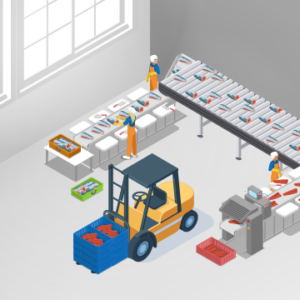
Electric forklift rentals shine in environments where emissions or noise are a concern. Certain worksites and facilities have strict requirements to minimize pollution – for example, cleanrooms, food processing plants, cold storage warehouses, hospitals, and environmentally controlled areas. In such places, using a propane or diesel forklift may be prohibited or undesirable due to the exhaust gases and particulates. Electric forklifts, being zero-emission at point of use, are the only viable choice in many environmentally-sensitive settings. By renting electric forklifts for these areas, businesses can maintain compliance with health and safety standards without having to purchase specialized equipment.
How to Find Electric Forklift Rental Near Me
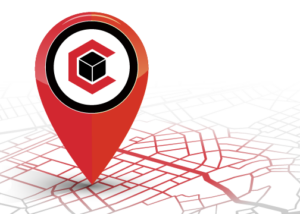
Evaluating Local Providers
When searching for an electric forklift rental, start by identifying reputable local providers. Look for authorized dealers of brands like Toyota, as they often have extensive rental fleets. Industrial equipment rental companies and material handling specialists are also good options.
If you’re located near Green Bay, Neenah, Wausau, Richfield, or Madison, consider working with Conger Industries. As an authorized Toyota forklift dealer and trusted material handling expert, Conger offers a large, well-maintained rental fleet and the expertise to help you choose the right equipment for your needs.
What to Look for in an Electric Forklift Rental Service
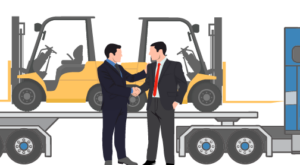
Once you have a potential rental company, you should evaluate the rental service features and terms in detail.
Key features to look for include:
- Equipment Selection & Quality: Ensure the rental service offers the specific type of electric forklift you need (e.g. 3-wheel vs. 4-wheel, required lift height, capacity)
- Included Maintenance and Support: Find out what maintenance is covered during the rental. Good rental contracts include routine maintenance and repairs at no extra charge (except damage you cause).
- Transparent Pricing: Look for clarity in the rental rates and any additional fees. A reputable service will spell out the costs upfront – daily/weekly/monthly rate, delivery fee, insurance or damage waiver (if any), taxes, etc.
- Delivery and Logistics: Check if the rental service includes delivery and pick-up of the forklift to your site (and what it costs). Most will offer this for a fee.
- Rental Terms & Flexibility: Review the terms regarding rental duration and extensions. Can you extend the rental if needed? Will they prorate if you return early?
- Additional Services: Check if the rental company offers operator training, chargers or extra batteries for electric forklifts, and attachments like fork extensions or drum clamps. Choosing a full-service provider simplifies your rental experience.
By examining these factors, you can choose an electric forklift rental service that meets your operational needs with no surprises. In short, look for a provider that is well-equipped, transparent, and service-oriented – this will ensure your rental experience is safe, efficient, and cost-effective.
Electric Forklift Rental Pricing
Factors Affecting Rental Pricing
Electric forklift rental costs can vary widely based on several key factors. Understanding these will help you estimate your budget and perhaps negotiate a better rate:
- Forklift Type and Size: The specific type of electric forklift you need is one of the biggest price drivers. Generally, larger or specialized forklifts cost more to rent than smaller, standard models.
- Rental Duration: How long you rent the forklift significantly affects the pricing structure. Shorter rentals (daily or weekly) have higher rates per day, while longer rentals (multi-week or monthly) give you a discounted rate. Rental companies typically offer tiered pricing: a day rate, a week rate, and a 4-week (month) rate.
- Location and Market Rates: Your geographic location influences rental costs. In areas with many rental suppliers and a lot of competition (big industrial hubs or port cities), rates may be somewhat lower due to supply.
- Seasonality and Demand: Rental pricing can fluctuate with demand cycles. During peak seasons when lots of businesses need extra forklifts (e.g. fall leading into the holiday retail season, harvest time for agricultural forklifts), demand spikes may lead to tighter availability and possibly higher prices.
- Included Services: What the rental rate includes will affect the bottom line. A rental that comes fully serviced (maintenance, repairs, etc. included) might have a slightly higher rate than one where you, say, pay separately if something needs fixing. Most electric forklift rentals include the charger and battery servicing, but clarify if there are any power-related fees.
By keeping these factors in mind, you can better understand a rental quote and even discuss options with the rental provider to potentially reduce cost. For example, if you only need a forklift for 3 weeks, ask if the monthly rate is cheaper. Or if you have flexibility, see if timing your rental in a different month changes the rate. Knowledge of the pricing factors puts you in control of optimizing your rental expense.
Average Costs and Pricing Models
Let’s break down some typical rental cost ranges for electric forklifts. Keep in mind these are approximate figures – actual prices depend on the factors above – but they provide a useful benchmark. Rates are usually quoted by the day, week, or month:
| Equipment Type | Daily Rate | Weekly Rate | Monthly Rate |
| 3-Wheel Electric Forklift | $121 – $181 | $365 – $543 | $1,095 – $1,630 |
| 4-Wheel Electric Forklift | $121 – $227 | $365 – $679 | $1,095 – $2,037 |
| Large Electric Forklift (high-capacity) | $204 – $339 | $613 – $1,016 | $1,839 – $3,050 |
| Stand-Up Rider Electric Forklift | $93 – $176 | $280 – $528 | $839 – $1,583 |
| Narrow Aisle Electric Forklift | $241 – $388 | $724 – $1,164 | $2,170 – $2,652 |
| Electric Pallet Jack / Stacker | $59 – $106 | $178 – $318 | $534 – $955 |
These ranges illustrate how costs scale with the size and specialization of the equipment. A simple electric pallet jack might be under $100 a day, whereas a big electric forklift that can handle heavy loads could be a few hundred dollars a day. Most mid-sized warehouse electric forklifts (3-wheel or 4-wheel, ~4,000–5,000 lb capacity) will fall somewhere in the $120–$200 per day range, $400–$600 per week, or around $1,100–$1,600 per month, as shown above.
Keep in mind that these are base rental fees and do not include any delivery charges, taxes, or insurance that might be applicable.
The pricing model for forklift rentals, as mentioned, rewards longer commitments. Looking at the table, you can see that the monthly rates are roughly 2 to 3 times the weekly rates (not 4 times, which would be the case if there were no discount).
Additional Rental Rate Strategies
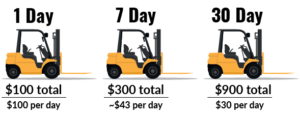
Always ask your provider to clarify the breakpoints: if you’re on a day rate, at what point would switching to a week rate save money, and similarly for week to month. If you anticipate keeping the forklift longer than initially expected, inform them – most companies will adjust you to the cheaper extended rate rather than rigidly charging a high day rate for an extra week.
Another aspect of pricing models is the concept of “overtime” or excess hour usage. Typically, a rental rate assumes a certain amount of forklift use: often 8 hours per day, 40 hours per week, or 160 hours per month (this is a common standard). If you use the forklift more than that – say running it 2 shifts per day – you might incur additional hourly charges.
Those charges could be $5-$15+ per hour of usage over the base allowance, depending on the equipment.
In summary, for budgeting purposes: a small electric forklift will cost on the order of a few hundred dollars per week, and a large or specialty electric forklift can be closer to a thousand dollars or more per week. Monthly rates for a standard electric forklift often fall in the mid-four-figures. These are operational expenses that you can start and stop as needed, which is the beauty of rental. Always get an official quote for accuracy, but the figures above provide a reasonable average cost expectation for electric forklift rentals.
Electric Forklift Rental FAQs
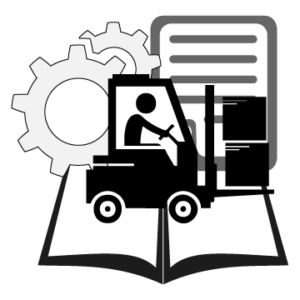
How Long Can I Rent an Electric Forklift?
You can rent an electric forklift for as short as one day or for months and even years. Common rental durations include daily, weekly, monthly, or long-term agreements. Rental terms are flexible and renewable as needed. For very long rentals, discuss options for better pricing or consider converting to a lease. Regular servicing may be included to maintain reliability.
What Maintenance Is Required During Rental Periods?
Minimal maintenance is required from renters. You handle daily inspections, battery charging, and basic care. Major maintenance, repairs, and scheduled services are typically managed by the rental provider. Report issues promptly to the provider. Damage from misuse or accidents is usually your responsibility, while normal wear and maintenance costs are covered by the rental company.
Are There Any Hidden Costs with Electric Forklift Rentals?
Common additional costs include:
- Delivery and Pickup Fees: Typically charged separately; ask in advance.
- Electricity Costs: Small daily charging cost at your facility.
- Attachments or Accessories: Additional fees may apply for special equipment.
- Insurance and Damage Waivers: Confirm if coverage is required or offered separately.
- Cleaning or Excessive Wear Fees: May apply if the forklift is returned excessively dirty or damaged.
- Overtime Usage Charges: Additional fees if usage exceeds contracted hours; clarify usage limits beforehand.
Review rental agreements carefully to understand all potential costs.
Conclusion
Choosing between renting or purchasing an electric forklift comes down to carefully evaluating your business’s specific operational needs, budget considerations, and long-term equipment strategy. Rentals offer significant flexibility, cost advantages for short-term use, and environmental benefits through zero emissions, making them an excellent choice for temporary or fluctuating demands. However, potential long-term expenses, limited equipment availability, and customization constraints may affect their suitability for continuous or specialized applications. By thoroughly assessing these factors and clearly understanding rental costs and terms, businesses can maximize their efficiency and productivity while maintaining budget control and operational agility.
